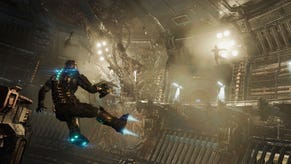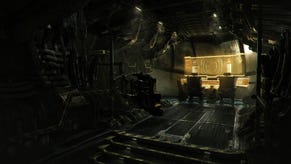Dead Space remake review: A masterclass in survival horror, all over again
One of the most influential horror games of all time returns to show us all how it's done. 15 years later, Dead Space asserts its place at the top.
As you hop aboard the USG Ishimura and into the suit of Dead Space protagonist, Isaac Clarke, you’ll unearth terror like never before in the form of Necromorphs. These alien horrors, alongside undertones of religious fanaticism, make the USG Ishimura one of the most terrifying settings in the survival horror genre.
In the same vein as Alien: Isolation, there is something so claustrophobic about being marooned in outer space; the immediate threat of body-horror aliens, the religious fanatics encouraging them to feed, and this huge vessel with a myriad of broken… everything. It gets in your head. Dead Space is a test of Isaac’s patience and resilience, and as you reach the third act of the game, you can tell that he’s wearing thin.
There are no safe spaces, and there is no escape from the USG Ishimura. Even in rooms with Save Stations and Stores, you can’t be sure that a Lurker or Slasher won't appear. This feeling of insecurity is paired with a satisfying combat system that Dead Space wouldn't feel the same without. Your headshots don't matter aboard the USG Ishimura. It's all about dismemberment. With abilities such as Stasis and Kinesis letting you slow enemies down and impale them with common items, combat is overwhelming at first. The second that you get into the swing of things, however, you can become incredibly creative when slaying hordes of Necromorphs.
Thanks to Dead Space’s 'Intensity Director', the spawn of hostile enemies and the way lighting or audio functions can be entirely unique to your personal experience of the game, so fights won't play out the same. You know what this means? You truly never know what to expect. This, accompanied by a terrifying score, ensures that Dead Space will get under your skin as much as it does Isaac's.
Dead Space’s music and orchestral scoring reaches haunting peaks that echo the work of John Carpenter (why is he not directing the Dead Space film again?), but not just when you’re in danger; the score will creep up on you and terrify you even during moments of safety. At no point does Dead Space choose to slow down; it constantly keeps you on the edge of your seat and has you questioning everything with various crescendos and racing tempos. What was that apparition? Why is Nicole talking about Isaac 'making everyone whole again'? What’s actually going on here?
.jpg?width=690&quality=70&format=jpg&auto=webp)
Dead Space has a plot that is genuinely interesting, and when it comes to piling on the tension, it doesn’t rely on cheap scares, either. If anything, the game serves as a master class in creating tension and suspense effectively in horror games – even now, some 15 years after the original launched. Take entering an elevator, for example. You’re thinking that you’re safe now, and that the Necromorph pursuing you definitely can’t fit in here. Suddenly, it’s bursting through the door, and you’ve spat out your drink that you thought you were finally safe to have a sip of. Or, you’re walking down a long corridor when the turbine at the end suddenly breaks. You immediately aim your gun and prepare for trouble, but in this instance, it was a false alarm; now you’re on edge all over again for no reason.
And that is just two basic scares of many that work to keep your attention focused on Isaac and the USG Ishimura at all times. I could talk for hours about all the thrills Dead Space has tucked away within it, but if you know, you know. And if you don’t, it’s better experienced for yourself.
When the music isn’t lulling you into a false sense of security, or you’re not fending off acid-spitting infants who can climb walls, you’re taking in the environment. The lighting, the fog, the film-grain. Top this off with no UI whatsoever. Dead Space knows how to keep you immersed. That is, until, the latter half of the game. As Chapter 7 unfolded, and I continued with the mission at hand, gameplay began to feel messy, and repetitive. What started out as pristine pacing soon became a blur; at one point, it felt as though every other room I entered became a quarantine zone where I was to take on a horde. After that, it felt like puzzles were endless, and combat was minimal.
While repetitive tasks ruined my immersion in the latter half, I couldn’t help but think that this somewhat worked in the Dead Space's favour. After all, could you imagine how Isaac feels by the time the final chapter of the game rolls around? His mental state slowly deteriorates as time goes on, and reaching the final chapters with both player and player character feeling worn thin really brought Isaac's experience to the foreground. That said – even with my afterthoughts excusing the repetitive nature of the game – this wasn’t the only issue I encountered.
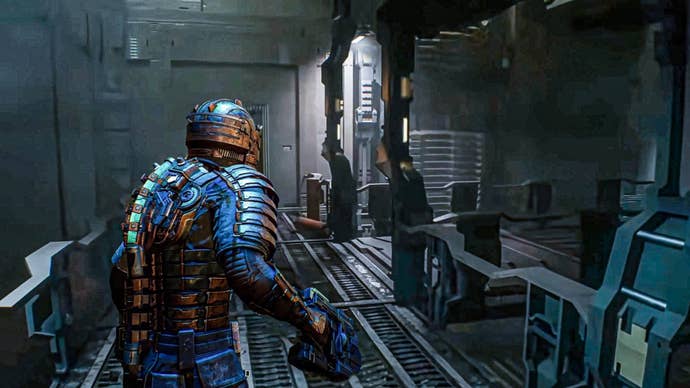
On more than one occasion, my game unfortunately broke. Playing on Xbox Series S, I encountered a few instances in which my game would freeze, usually on death, and have to be restarted. This, on top of enemies that were glitching all over the show, took me out of this carefully curated, intentionally crafted world.
Enemies would sometimes stand in front of me, staring and doing nothing, and more often than not, if I killed an enemy in a location such as a doorway or corner, its corpse would spasm to no end and in the worst of cases, fly around the room. This led to a lot of confusion when taking on hordes of Necromorphs, and regularly resulted in me stomping an entire room to smithereens just to ensure everything was actually dead. That said, Dead Space’s auto-save feature often came in clutch, and I hope to see these minor quality-of-life issues fixed in the near future.
Finally, let’s not neglect our protagonist, space-faring engineer Isaac, too. He talks this time around, giving him a little more personality and emotional flesh, and he’s pivotal in making you feel anxious. After a tense time fighting The Hunter and dealing with the perils of maniacal Dr. Mercer, I took a short break, and having just saved, I didn’t pause my game.
As I sat there scrolling through my notes, I could even hear my own heartbeat in my head. My physical reaction to the game made me feel more scared, until I realised after checking my BPM that it was not, in fact, my heart. It was Isaac’s. I listened a little more carefully and could hear him also catching his breath. I was actually fine, but I didn’t feel fine.
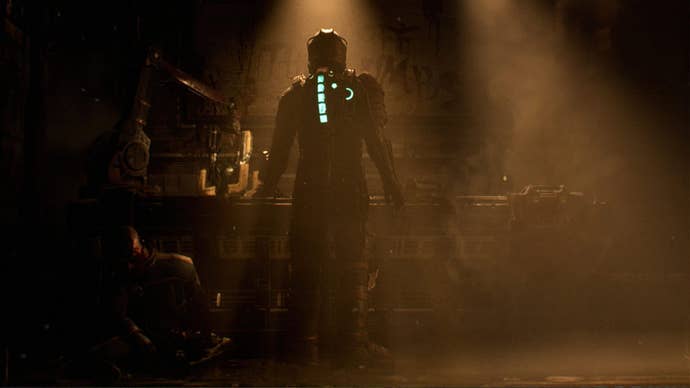
Dead Space doesn’t just place you into the role of Isaac Clarke, it forces you into his head, too. You’re constantly questioning if the apparitions he is seeing are real, and his physical reaction to the unbelievable events aboard the space ship only fuel yours further. You are completely at the whim of the USG Ishimura, and it never lets you forget that. Ultimately, Dead Space is a game that a lot of horror developers can learn from when it comes to creating suspense and a feeling of dread in its players.
And as far as remakes go, Dead Space has me thoroughly pining over a decade-old series. That’s a success, if you ask me.
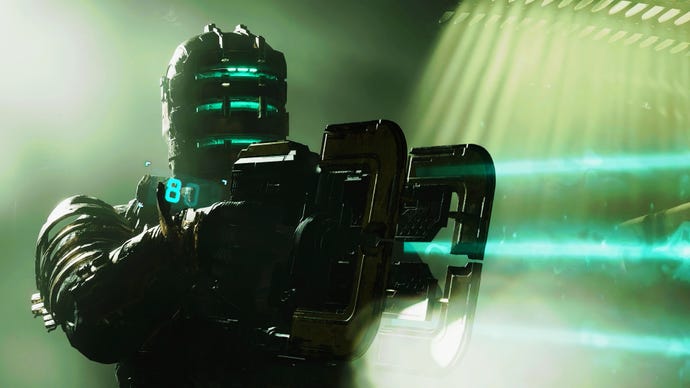

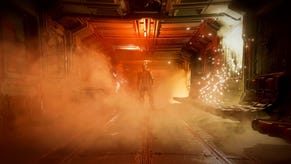
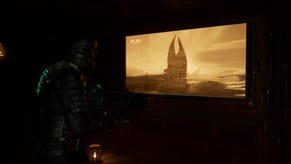
.jpg?width=291&height=164&fit=crop&quality=80&format=jpg&auto=webp)
.jpg?width=291&height=164&fit=crop&quality=80&format=jpg&auto=webp)
.jpg?width=291&height=164&fit=crop&quality=80&format=jpg&auto=webp)
.jpg?width=291&height=164&fit=crop&quality=80&format=jpg&auto=webp)
